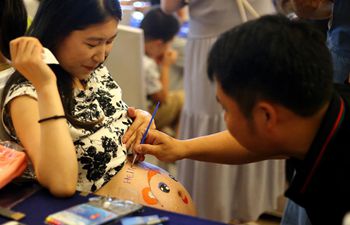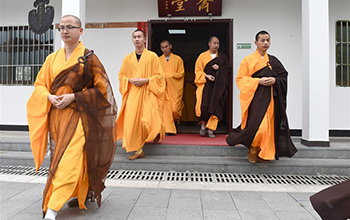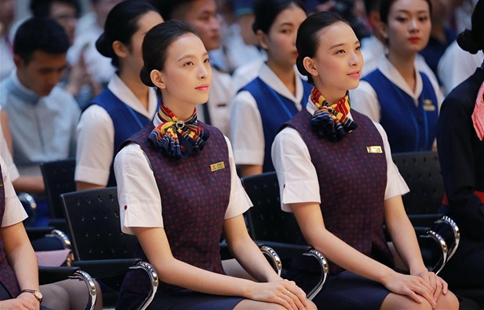SYDNEY, June 19 (Xinhua) -- An Australian professor has uncovered the genetic differences between Chinese and Western dementia patients that could revolutionise treatment for sufferers.
Very little is known about frontotemporal dementia (FTD), a type of brain disease which can take a huge toll on a person's life by altering their personality, intellectual capabilities and behaviour, however, Professor Huang Yue is hopeful that her research will shed some light on the devastating disease.
There is no cure for FTD, which can even impact those under 50 years of age, and so little is known about its causes that it is often misdiagnosed by doctors, according to Huang.
The University of New South Wales researcher found the genetic makeup of Chinese patients with FTD differs from that of western patients, a breakthrough which could help doctors develop a cure for the condition.
"There are some genetic mutations that the Chinese patients had that western people don't, and we can use this knowledge to better the therapy for our patients," Huang told Xinhua recently.
"It's about being more precise and knowing our patients better. When we know what is causing this disease in the first place, we can get a more precise diagnosis, and a more precise treatment."
Understanding how certain populations differ can "enhance understanding about the features of the disease," according to Huang, as it can help doctors understand how gene therapy could be used as a viable treatment option.
"Genetic mutations may occur in one population but not another," Huang said, "Genetic studies about different populations will enhance our understanding about the diverse clinical features of a disease.
With around 10 million new cases each year, World Health Organization estimates around 47 million people suffer from dementia and with no treatment currently in sight.
Researchers like Huang hope to ease the burden, with knowledge that can be used to further early diagnosis and make treatment more suitable for a patient's needs.
Though FTD patients make up around 15 percent of the world's total dementia sufferers, Huang told Xinhua that many suffer in silence, and the best way to help these patients is transition from the goal of fighting symptoms to that of finding a cure.
"In the future, we need to focus on molecular targeting, that means, using recent developments in science to edit the gene itself. We can intervene early and stop the disease occurring entirely."
Early identification should be a big focus for scientists as they continue to work towards a cure, Huang explained, so patients can have a better understanding of the disease which is often mistaken for depression.
"By checking people's genes, we can identify them early, and this allows people to plan their lives properly. It also gives them the option of seeking out clinical trials for people with specific types of gene mutations," Huang said.
"That way, people have proper guidance and understand their condition. It gives them an understanding of their own life."

















